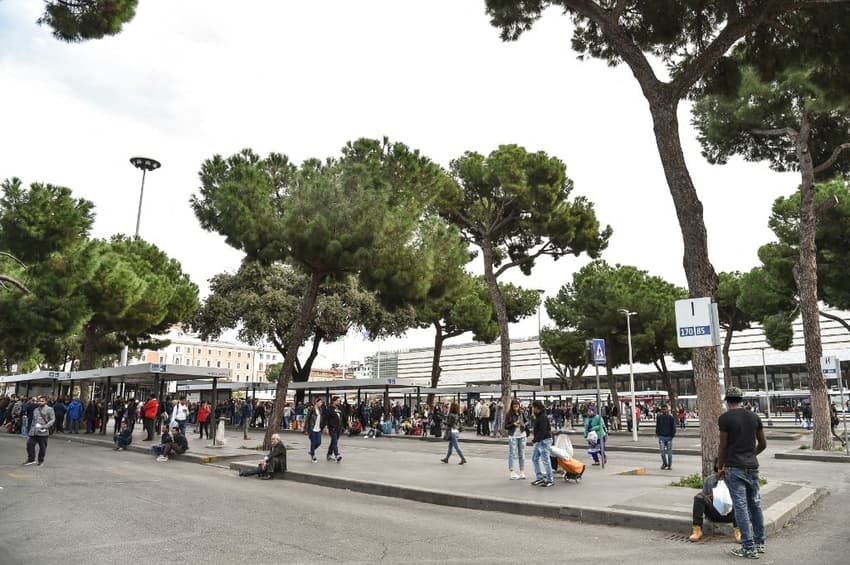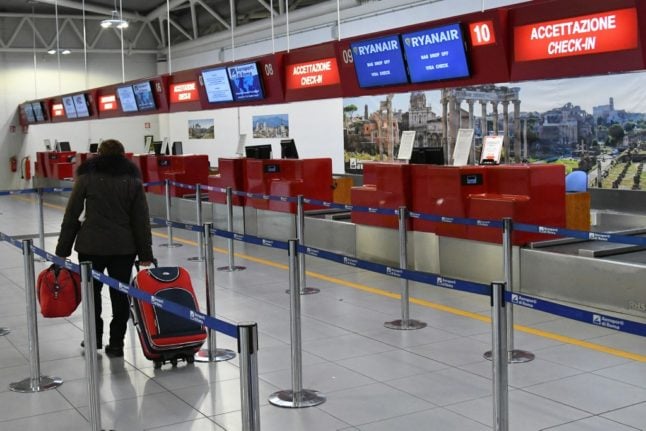EXPLAINED: Why are there so many transport strikes in Italy?

You may have noticed that transport strikes are common in Italy - and yet they rarely cause much disruption. Here’s a look at the reasons why.
Transport strikes are a frequent occurrence in Italy, with at least two or three nationwide demonstrations taking place each month recently and a number of regional or local walkouts being held each week.
READ ALSO: The transport strikes to expect in Italy this spring
Strike action has been particularly intense over the past few weeks, with travellers facing delays and cancellations as rail, airline and public transport services were all disrupted by demonstrations.
But why are strikes so frequent in Italy?
The answer lies in the nature of the Italian union landscape as, besides its three main national associations – CGIL, CISL, UIL – the country counts hundreds of smaller trade unions, often operating at a regional or even local level.
And, while strike action is often coordinated in other EU countries, including France and Germany, most unions in Italy operate independently, planning their own demonstrations and carrying them out where and when they see fit.

Strikes in Italy are rarely jointly coordinated, with most unions choosing to operate independently. Photo by Alberto PIZZOLI / AFP
While this results in a large number of strikes being held over the course of a year in Italy, it also means that very few walkouts are disruptive enough to trigger a meaningful response from employers.
In other words, only a few strikes end up achieving the intended result, which ultimately forces unions to plan further demonstrations down the line.
Plus, most public transport companies in Italy are partly state-owned, meaning that only part (usually around 30 percent) of their operating costs is covered by the sale of tickets or season passes, with the rest being bankrolled directly by the state treasury.
READ ALSO: Should you travel in Italy when there’s a strike on?
As such, walkouts generally cause only limited losses to the employer, which means they have little financial incentive to grant workers’ requests. Once again, this forces unions to plan further strikes.
Finally, under Italian law, all strikes involving services to the public, including public transport, must be announced to the relevant government department (the transport ministry in this case) at least 10 days ahead of time.
This generally gives employers enough time to make arrangements in order to minimise disruption during strikes.
You can keep up to date with the latest strike news from Italy HERE.
Comments
See Also
Transport strikes are a frequent occurrence in Italy, with at least two or three nationwide demonstrations taking place each month recently and a number of regional or local walkouts being held each week.
READ ALSO: The transport strikes to expect in Italy this spring
Strike action has been particularly intense over the past few weeks, with travellers facing delays and cancellations as rail, airline and public transport services were all disrupted by demonstrations.
But why are strikes so frequent in Italy?
The answer lies in the nature of the Italian union landscape as, besides its three main national associations – CGIL, CISL, UIL – the country counts hundreds of smaller trade unions, often operating at a regional or even local level.
And, while strike action is often coordinated in other EU countries, including France and Germany, most unions in Italy operate independently, planning their own demonstrations and carrying them out where and when they see fit.

While this results in a large number of strikes being held over the course of a year in Italy, it also means that very few walkouts are disruptive enough to trigger a meaningful response from employers.
In other words, only a few strikes end up achieving the intended result, which ultimately forces unions to plan further demonstrations down the line.
Plus, most public transport companies in Italy are partly state-owned, meaning that only part (usually around 30 percent) of their operating costs is covered by the sale of tickets or season passes, with the rest being bankrolled directly by the state treasury.
READ ALSO: Should you travel in Italy when there’s a strike on?
As such, walkouts generally cause only limited losses to the employer, which means they have little financial incentive to grant workers’ requests. Once again, this forces unions to plan further strikes.
Finally, under Italian law, all strikes involving services to the public, including public transport, must be announced to the relevant government department (the transport ministry in this case) at least 10 days ahead of time.
This generally gives employers enough time to make arrangements in order to minimise disruption during strikes.
You can keep up to date with the latest strike news from Italy HERE.
Join the conversation in our comments section below. Share your own views and experience and if you have a question or suggestion for our journalists then email us at [email protected].
Please keep comments civil, constructive and on topic – and make sure to read our terms of use before getting involved.
Please log in here to leave a comment.